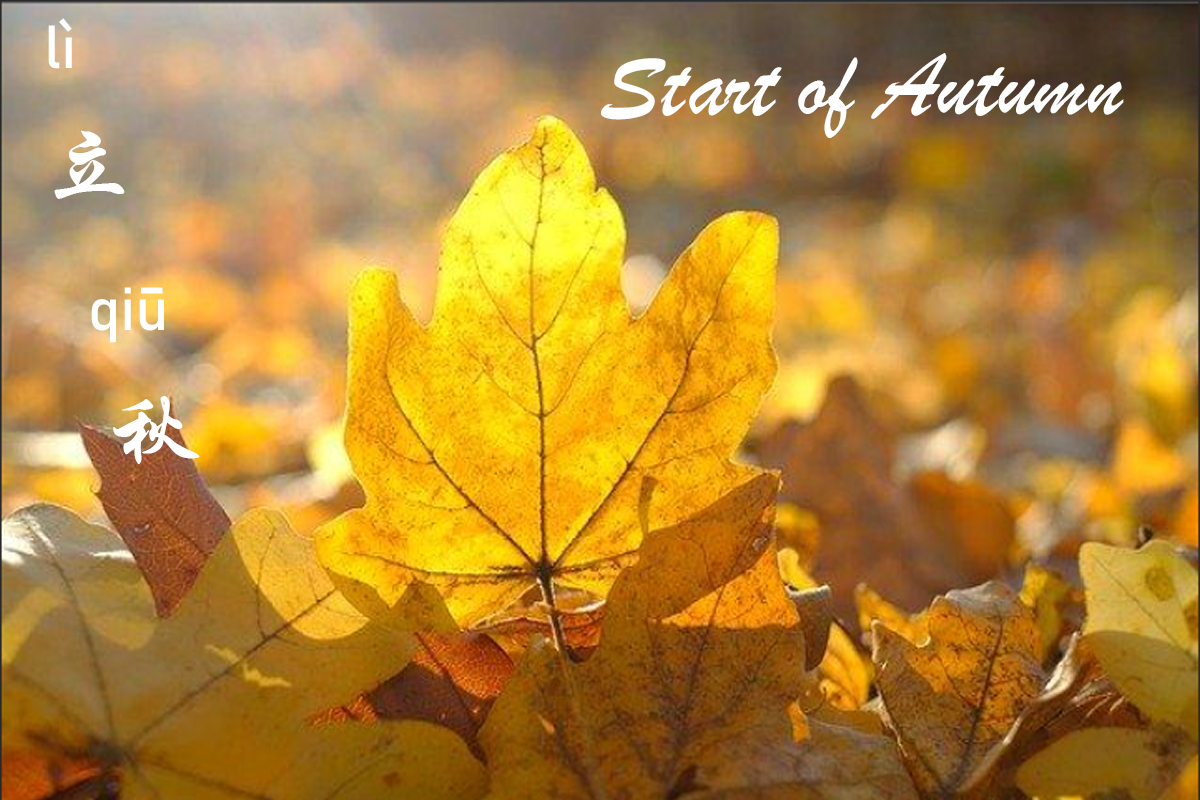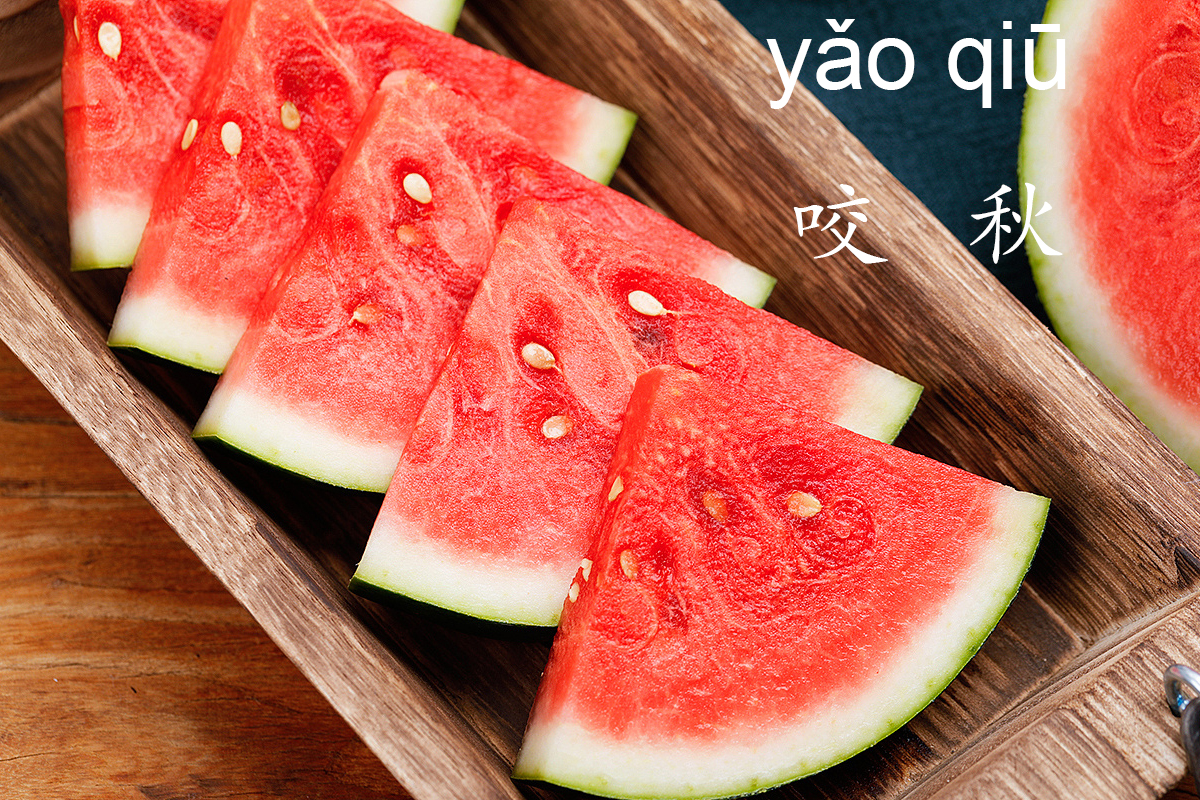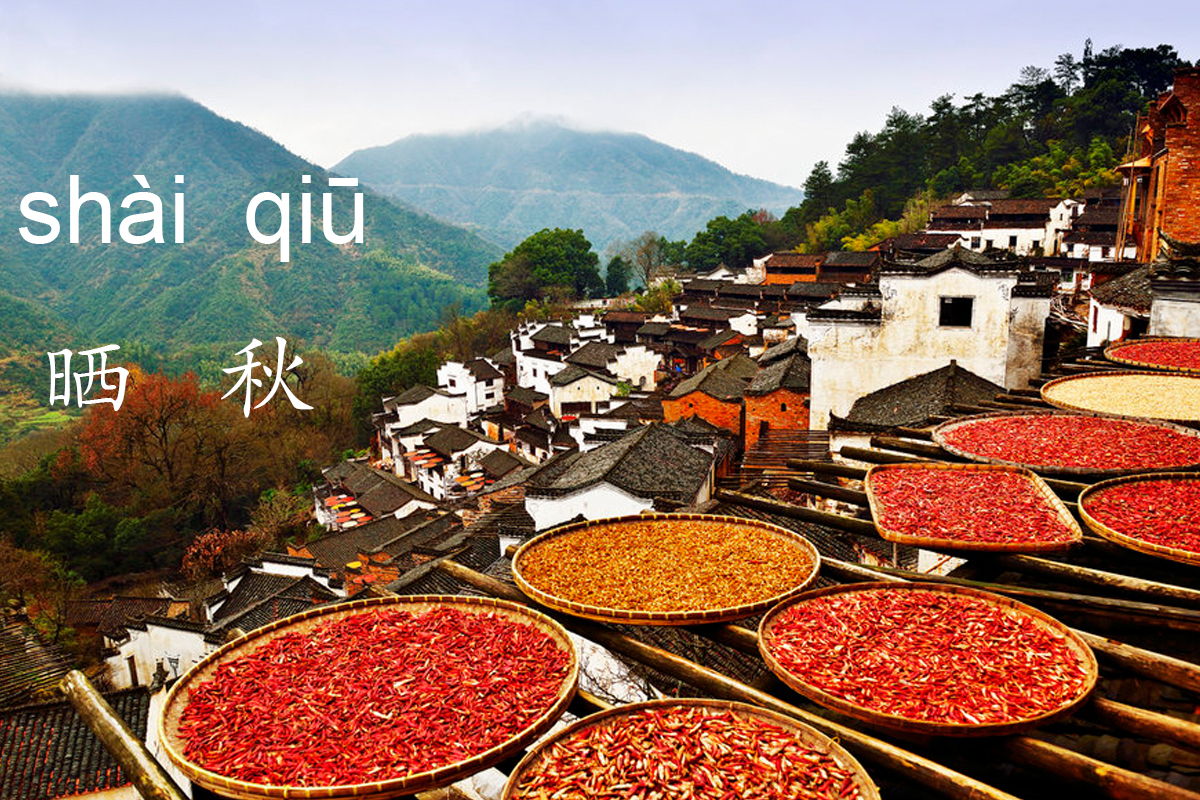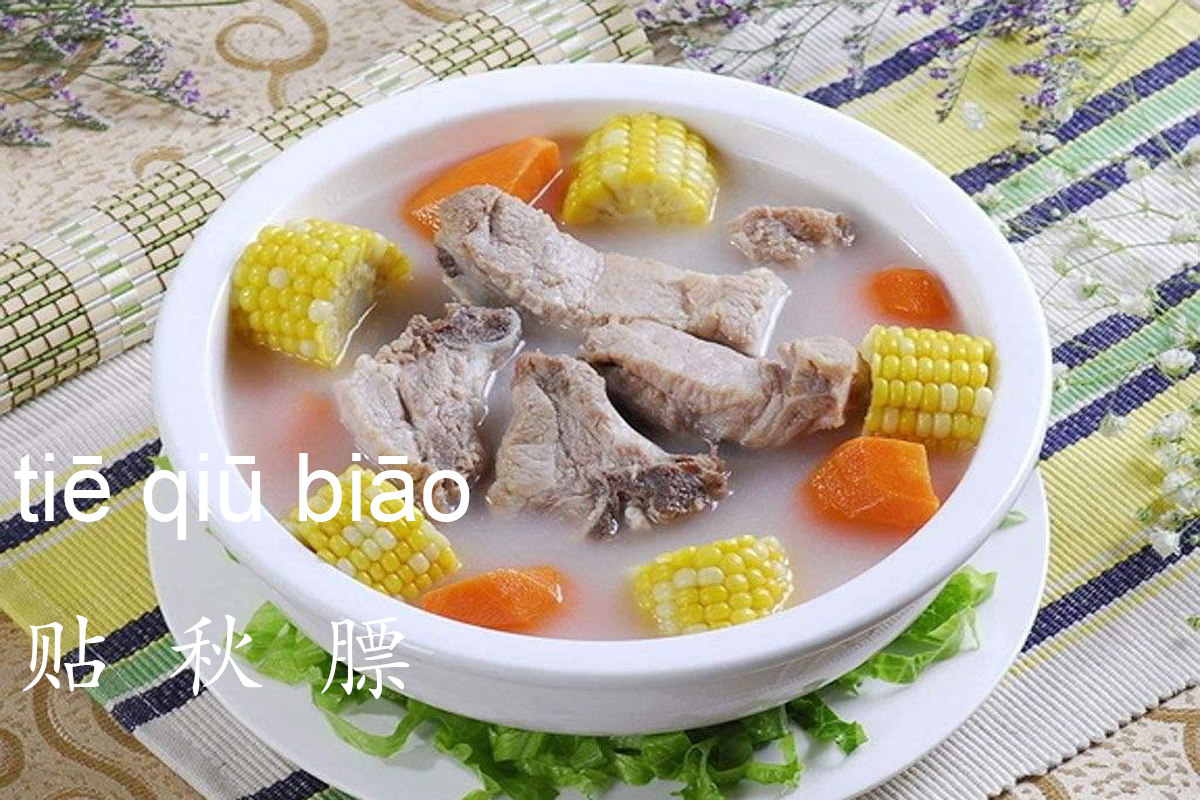Start of Autumn Arrives: Embracing Liqiu and Its Customs
On August 8th, “立秋(lì qiū)”, Start of Autumn, arrived. It is one of the 24 solar terms, which were created thousands of years ago to guide the agricultural affairs. The term“立秋”consists of “立”,meaning the beginning, and "秋," referring to the autumn. It signifies the end of summer and the approaching of autumn. However, the summer heat persists, with high temperatures lingering for about 30 days, accompanied by the final period of Sanfu days, known as “Mofu”. Due to decreasing precipitation, it is even more sweltering than during“大暑(dà shǔ)”,Major Heat (one solar term that lies at "Zhongfu", the hottest period of a year). Hence, the period of hot days after Start of Autumn is often called the “Autumn Tiger”, comparing the ferocity of the hot weather to a tiger. Meanwhile, autumn is also a big season for farmers. It is time to harvest crops, so Start of Autumn carries the hopeful anticipation of bountiful food production.
Here are some customs related to Start of Autumn.

咬秋(yǎo qiū) Bite Autumn
咬秋,Bite Autumn, refers to eating watermelons. In bitter summer, the hot weather often reduces one's appetite and causes weight loss, while the lingering heat persists even after the arrival of Start of Autumn. Watermelon, with its sweet and refreshing taste and crisp texture, provides a cooling and thirst-quenching effect. Therefore, enjoying watermelon helps alleviate decreased appetite and dispel the remaining heat. The word “bite” vividly depicts people's desire to enjoy this delightful fruit. There is also a belief that eating watermelon on this period can prevent certain diseases. Historical records mention cases where people successfully treated illnesses such as dysentery and diarrhea by eating watermelon, thus forming a tradition. On Start of Autumn, people consume watermelon to ward off diseases that may arise during the winter and upcoming spring. Besides, as the availability of watermelon gradually declines after summer, indulging in its flavor carries a tinge of farewell, signifying the beloved fruit's departure from the market.

晒秋(shài qiū) Dry Farm Produce in Autumn
During Start of Autumn, in some regions of southern China, such as Jiangxi and Anhui, where villages lived amidst terrain with scarce flatlands. They engage in the practice of drying their farm produce in their front and back yards, roofs, and balconies. Here comes a beautiful harvest scene: The yellow chrysanthemums, red chili peppers, and green beans, which has attracted many photographers, artists, and tourists. Farmers take their freshly harvested fruits and use them to paint their houses with the most vibrant colors, creating a striking contrast against the white walls and black tiles, thus resembling a watercolor painting that embodies the unique characteristics of the region.

贴秋膘(tiē qiū biāo) Fleshing out in Autumn
As autumn draws near, the weather gradually cools down, and people's appetites begin to increase. They are inclined to consume more and more food, especially meat, to replenish the energy lost during the summer and prepare for the upcoming coldness. Stewed meat, grilled meat, and various food abound. Pork rib soup, in particular, being widely favored. Pork ribs, dried jujube fruit, white radishes, and carrots are needed, seasoned with fish sauce and white pepper. The simmering process typically lasts for 1-2 hours, allowing the meat to become tender. What creates a delightful flavor are the savory aroma of the meat and vegetables intertwined with the sweetness of the dried jujube fruit. Moreover, it is rich in nutrients such as proteins and vitamins. Another popular choice is dumplings, a traditional Chinese delicacy. They can be found on many significant occasions, and Start of Autumn is no exception. Eating dumplings on this period is a way to express people’s expectations for a bountiful harvest.

Key Notes: Some Expressions about Autumn
- 一叶知秋(yī yè zhī qiū):a Chinese idiom, meaning that a falling leaf heralds the coming of autumn, signifying subtle signs can predict the development trend of things.
- 秋高气爽(qiū gāo qìshuǎng): a Chinese idiom, meaning that the autumn sky is clear and the air is crisp and cool.
- 立秋有雨样样收(lì qiū yǒu yǔ yàng yàng shōu):a Chinese proverb, meaning that if it rains on the day of the Start of Autumn, a good harvest is expected.
Xiao Ming: Xiao Hong, "Start of Autumn" has arrived, and autumn is coming.
小明:小红,“立秋”到了,秋天要来了。
Xiǎo Míng: Xiǎo Hóng,"lì qiū" dào le, qiū tiān yào lái le.
Xiao Hong: But it is still very hot recently.
小红:可是最近的天气还是很热呀。
Xiǎo Hóng: kě shì zuì jìn de tiān qì hái shì hěn rè ya.
Xiao Ming: Yes. The period after "Start of Autumn" is called "Autumn Tiger" . The hot weather is as fierce as a tiger.
小明:是的,所以“立秋”后也叫“秋老虎”,炎热的天气像老虎一样凶猛。
Xiǎo Míng: shì de, suǒ yǐ "lì qiū" hòu yě jiào"qiū lǎo hǔ ",yán rè de tiān qì xiàng lǎo hǔ yī yàng xiōng měng.
Xiao Hong: I see. But the autumn sky is clear and the air is crisp and cool, which is very suitable for an outing!
小红:原来如此。不过,这种秋高气爽的天气很适合郊游呢!
Xiǎo Hóng: yuán lái rú cǐ. bú guò, zhè zhǒng qiū gāo qì shuǎng de tiān qì hěn shì hé jiāo yóu ne!
Xiao Ming: I think so, too. Let's go for an outing tomorrow.
小明:我也觉得,我们明天去郊游吧。
Xiǎo Míng: wǒ yě jiào dé, wǒ men míng tiān qù jiāo yóu ba.
Want to learn more about Chinese culture? Please refer to our free resources on Chinese culture.